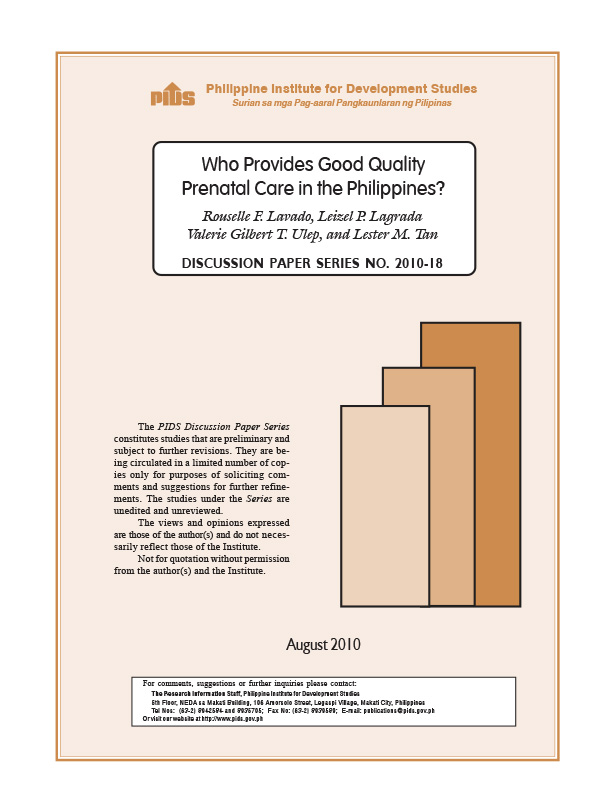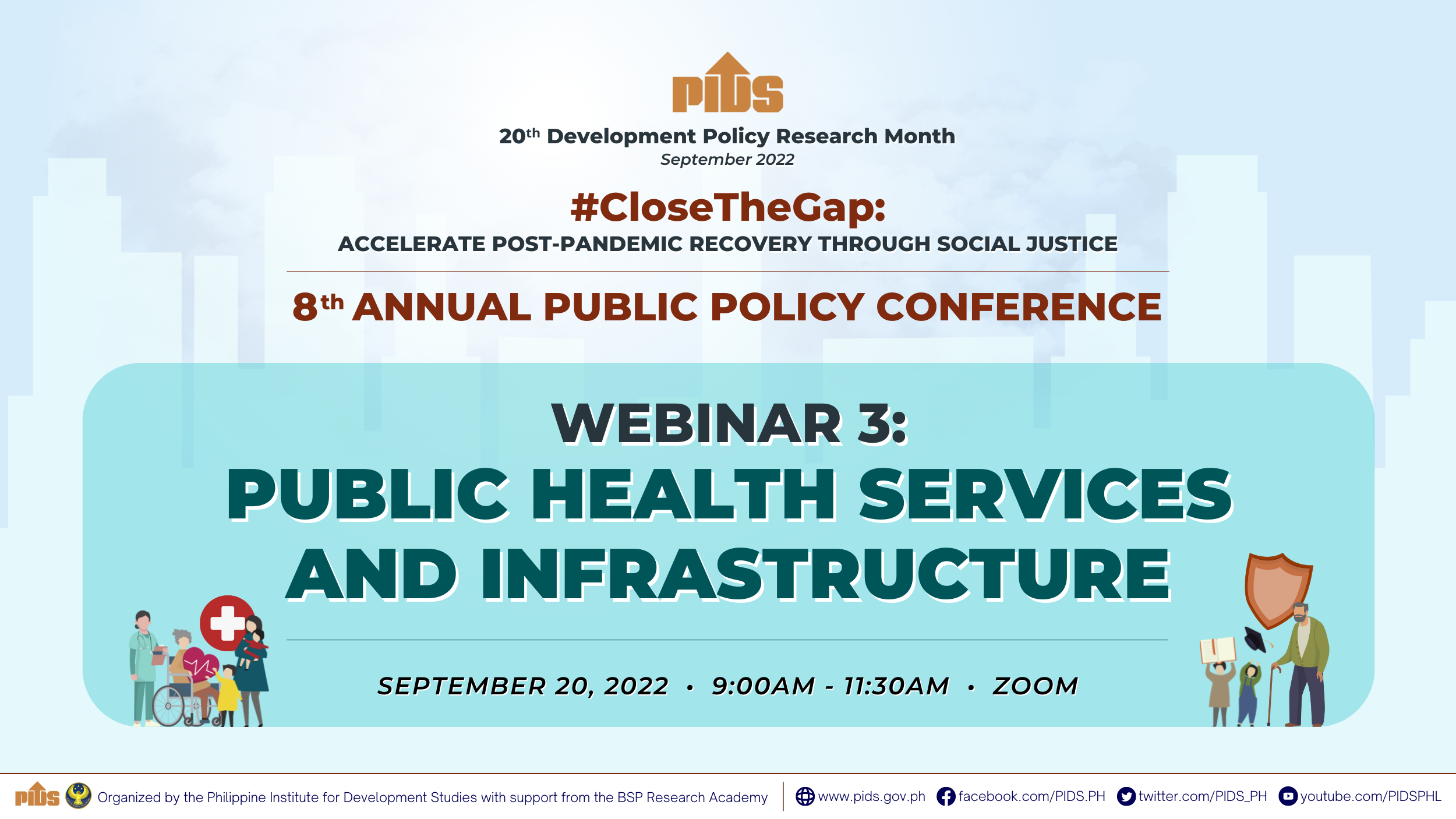This paper attempts to illustrate the quality of prenatal care services provided by different health care providers. Section I presents the introduction and overview of the study. Section II discusses important information gathered during literature review which was organized into prenatal care and its benefits, recommended practice and discussion of quality of prenatal services. Sections III and IV present the detailed objectives and methodology adapted in the study. Section V discusses the results of the analysis. Lastly, Section V and VI present the discussions and policy recommendations. Results of the study include women who are older, poorer, and with lower educational attainment received poorer quality of prenatal care compared to women who are younger, richer, and better educated. Multiparous women also received poorer quality of prenatal care. Among the health care providers, doctors provide very good quality of prenatal care while majority of midwives and nurses provide fair quality of prenatal care. Not surprisingly, majority of the traditional birth attendants provide poor quality of prenatal care.
Citations
This publication has been cited 2 times
- Khan, Rana Ejaz Ali and Muhammad Ali Raza. 2017. Utilization of quality source of prenatal-care in India: An evidence from IDHS. Social Indicators Research: An International and Interdisciplinary Journal for Quality-of-Life Measurement, 131, no.3, 1163-1178. Springer.
- Khan, Rana Ejaz Ali and Muhammad Ali Raza. 2013. Maternal health care: The case of iron supplementation in India. MPRA Paper 66555. University Library of Munich, Germany .













